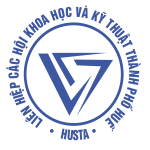“We are passionate about the need to make a real difference for people, based on solid evidence and the strong academic environment in Hue University.” – This is the heart-warming desire of Professor Michael Patrick Dunne and his colleagues of the Institute for Community Health Research (ICHR) for the public health sector in Thua Thien Hue Province.
Professor Michael Patrick Dunne – Queensland University of Technology (QUT), Professor Emeritus of Hue University, Co-Director of the Institute of Public Health Research under Hue University of Medicine and Pharmacy, has made substantial and vital contributions to the training and research activities in Hue, assisting in the development of human resources for both the university and the province as a whole over the past 15 years.
As one of the typical intellectuals honored by Thua Thien Hue Union of Science and Technology Associations (HUSTA) in Thua Thien Hue Province in 2021 for sustained and effective contributions, HUSTA has an interesting interview with Professor Michael Dunne.
- We are glad to know that you are the Co-Director of the Institute for Community Health Research (ICHR), which is the result of the cooperation between the University of Medicine and Pharmacy, Hue University and Queensland University of Technology (QUT), Australia. What made you passionately engaged in the University of Medicine and Pharmacy, Hue University; and what were your aspirations when you decided to establish the research institute?
Professor Michael Dunne: My work with Hue University commenced in 2005 and we have had a continuous, productive and enjoyable collaboration, which hopefully will extend into the future. In the early years, my role was as a consultant with Atlantic Philanthropies, and I was invited by Hue UMP to assist in developing staff capacity and curriculum in a new Public Health Faculty. From our first meetings, it was clear we could work together effectively. Quite soon, I felt genuine friendship with many colleagues. We did a lot of hard work in the first five years and I am happy to say, there were good, practical outcomes for Public Heath teaching.
In 2011, together with leaders of Hue UMP and the Public Health Faculty Dean Vo Van Thang, we developed strategies to improve research capacity. A collaborative research centre was established, with a focus on gathering local evidence to promote community health. Our first steps were successful, as we expanded links to health practitioners in 5 provinces in the central region, set up links with national partners and international universities, published scientific papers and trained Vietnamese and Australian PhD students. In 2014 the University allowed us to establish a research Institute.
- The effort of increasing staff capacity and expanding the training program is also evolving and expanding. Can you share the significant challenges you and your co-workers have faced, as well as the accomplishments you are most proud of?
Professor Michael Dunne: There were many challenges, especially in the first five years. We had to find resources for community-based research projects, staff training scholarships, office equipment and operating costs. This was achieved through support of Atlantic Philanthropies, QUT, Australian government scholarships and shared projects with other partners. We developed the training resources to achieve international standards. Another important challenge was to ensure my colleagues in QUT and Hue UMP genuinely understand each other. We knew that our work together should be more than just a business operation. We took time to learn about the strengths and weaknesses of both partners, and developed a relationship based on mutual trust and respect.
I am proud of many achievements from our work with Hue University. First, it has been a great honour to have supervised 25 Vietnamese PhD scholars, including young researchers from Thua Thien Hue province. It warms my heart to see them learn during their PhD work and later, thrive in their careers in Hue UMP and throughout Vietnam. Second, I am happy with my role in working with the ICHR to expand our national and international linkages. In early years of the Institute, we were mostly dependent on funds and scientific partnerships with QUT colleagues. After a decade, we now have many solid global linkages. This includes research with colleagues in world leading Universities, such as Universities of Cambridge and Edinburgh, Free University of Amsterdam, Tokyo Medical and Dental University, University of Antwerp and other partners in Thailand, Taiwan, Germany, UK, Belgium, USA, New Zealand, Japan and South Korea. Our international work has been highly valued by partners in the Sub-Mekong Public Health Network and the Asia Health Literacy Association. Third, the Institute has been active in providing training and consultancy in biostatistics and research methodology for health practitioner-researchers in Vietnam, especially in the central region. Fourth, our collective work is producing many international and national publications, Full details are available here: http://iccchr-hue.org.vn
- We know that researchers in ICHR won the Third Prize of the Technical Innovation Contest of Thua Thien Hue Province in 2019 with the topic “Research on the rate of postpartum depression and the connection between cultural and social factors and young factor on postpartum mental health of women in Thua Thien Hue province”, Can you tell us more about the value and efficiency of the research?
Professor Michael Dunne: Good maternal health during and after pregnancy has profound benefits for child development and family wellbeing. Conversely, perinatal mental distress and physical disorders cause significant harm. In Vietnam and other parts of our South East Asia region, there has been relatively little research into these problems. Our aim is to generate local research that gives insight into local social and cultural factors that affect mothers’ mental health and child development, so that public health solutions can be implemented.
Our researchers have done important studies into prenatal and postnatal depression and its probable causes. We have completed in-depth mental health interviews with over 1,200 pregnant women and mothers in Hue and Danang, completed comprehensive psychological interviews with 800 adult residents in rural and urban Thua Thien Hue, and other related studies. Our research has demonstrated that brief screening for common mental disorders is feasible in clinical and community settings in Hue; indeed, many women in our experience are willing to talk about their psychosocial wellbeing and factors that impair it. It is clear that brief screening should be implemented in routine care of pregnant women and new mothers – at all levels of health care in Vietnam –, similar to the psychosocial care provided in many Middle- and High-Income countries. There is a special need to sensitize doctors, nurses and midwives to the impact of inter-partner violence during pregnancy, as this has serious effects on mothers’ health, birth complications and infant development. ICHR researchers have worked closely with the Evidence for Better Lives Study’(EBLS) coordinated by the University of Cambridge in the UK and partners in eight middle income countries. For more details, see: http://iccchr-hue.org.vn
Our maternal health research also includes a special focus on mothers who live with physical disabilities. We have worked to integrate the findings of research directly into undergraduate training and continuing professional education for health professionals, as well as provide evidence that is needed for campaigns to raise community awareness of the needs of pregnant women with disabilities, mental distress and other social adversities.
- As the Covid-19 pandemic is predicted to develop in a complicated way, how has the Institute contributed to research on COVID-19 in Vietnam and globally?
Professor Michael Dunne: As community health researchers, we often focus on health-related behaviours and the social conditions that influence them. During this pandemic, we have been working with an international collaboration coordinated by the University of Antwerp in Belgium. We have conducted several large-scale online surveys that measure the extent to which Vietnamese people nationally adhere to COVID-safe guidelines. Recently, we published findings that show the severe impact on doctors and the health system of caring for COVID patients in Danang. Full details are available in English and Vietnamese on our website.
- Working with the University of Medicine and Pharmacy, Hue University for such a long time, what’s your thoughts on human resources and human resource training for public health in Thua Thien Hue Province?
Professor Michael Dunne: I am optimistic about the human resources in Hue UMP and throughout the public health sector in this province. The team in Hue University, from professors to junior lecturers, are committed to the cause of improving public health and sustaining the public health system. In 2021 we have many teachers and researchers with PhD and Master degree training to international standards. The undergraduate programs are diverse and interesting, and produce graduates with skills in health program evaluation, health informatics, healthcare management, epidemiology, environmental and occupational health, nutrition, health psychology, and health promotion. Over the past 15 years, through the tireless efforts of many people and strong support in Vietnam and internationally, the professional training and research capability of staff and students in Public Health in Hue is now impressive and I would say equal or better than students and professionals in many countries.
- Can you share your plans for the upcoming work?
Professor Michael Dunne: Thanks for this great question! We try every day to imagine a future without COVID-19 suffering and disruption to normal life. In the future, our team in the Institute for Community Health Research and I plan to continue working together. We have much more to do, especially to apply the findings from our research to improve community health services and training for healthcare workers. We have a project called TRICEP (Transforming Research to Improve Clinical Education and Practice). It was going well before the pandemic, and we hope to refresh this work once it is feasible to do so. In 2020-2021 we have published many scientific papers across important public health problems. Now we want to infuse this information into our training programs for students and health workers in the community. We are passionate about the need to make a real difference for people, based on solid evidence and the strong academic environment in Hue University.
* Thank you for the interview.








